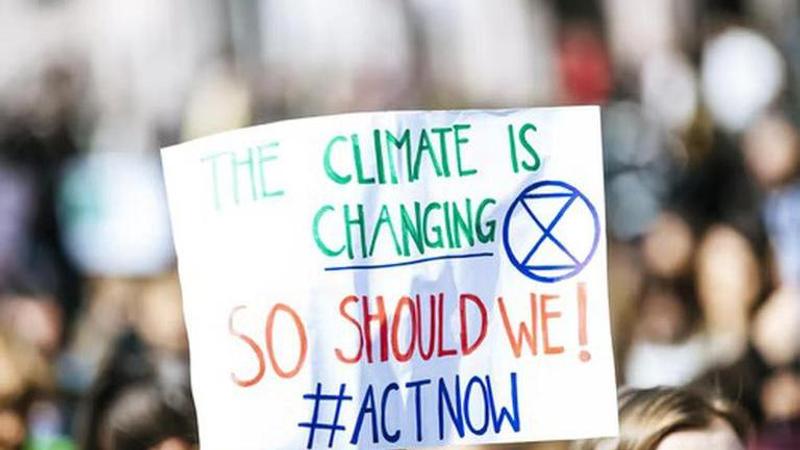Published 17:17 IST, December 18th 2021
Explained: Is climate change real? Here's why nations pledged to cut down carbon emissions
According to the American Association for the Advancement of Science, about 97% of climate scientists have concluded that human-caused climate change is real.

While climate change has been a constant part of the planet since its formation over 4.5 billion years ago, global warming - accelerated by human activities causing greenhouse gas emissions - is acting as a catalyst in changing climate patterns across the world.
According to NASA’s Goddard Institute for Space Studies (GISS), the average global temperature on Earth has increased by a little more than 1 degree Celsius since 1880. However, two-thirds of the warming has occurred since 1975, at a rate of roughly 0.15-0.20 degrees Celcius per decade, according to the NASA Earth Observatory.
While a one-degree change might sound like a small measure, globally the change corresponds to an enormous shift in climate conditions leading to intense heatwaves, floods due to an increase in precipitation, droughts due to lack of rain, wildfires caused by extremely dry conditions, etc.
(Image: NASA)
Are humans causing climate change?
According to a statement by the American Association for the Advancement of Science, "based on well-established evidence, about 97% of climate scientists have concluded that human-caused climate change is happening."
A similar stance was parroted by the American Chemical Society, who said, "The Earth’s climate is changing in response to increasing concentrations of greenhouse gases (GHGs) and particulate matter in the atmosphere, largely as the result of human activities."
Supporting findings of the apex climate research committee - Intergovernmental Panel on Climate Change (IPCC) - the American Meteorological Society concluded that, "Research has found a human influence on the climate of the past several decades ... The IPCC (2013), USGCRP (2017), and USGCRP (2018) indicate that it is extremely likely that human influence has been the dominant cause of the observed warming since the mid-twentieth century."
Why should we be concerned about climate change?
Man-made climate change has disastrous effects on human society. Rise in temperature contributes to change in precipitation patterns, which when moves over warm land may converge into storms, making hurricanes stronger.
(Hurricane Ida killed over 100 people in the USA and caused damages over $65 billion this year, Image: AP)
In warmer areas like the Middle East, Africa and Southwest North America, the temperature rise also means more drought and heatwaves-- like the one experienced earlier this year in California followed by subsequent fires in Caldor and Dixie, and the ongoing drought in Kenya. Last but not the least, the global sea level has already risen by eight inches since 1880, as per NASA. If the rise continues, the world is expected to see another one to eight feet increase by the year 2100.
Experts warn 1.5°C is 'real science', not a political number
This brings to why it is necessary to stall the rise in temperature at '1.5°C', which has racked the nerves of the world leaders at the COP26 Climate Summit in Glasgow, in October.
"Taken as a whole, the range of published evidence indicates that the net damage costs of climate change are likely to be significant and to increase over time," the Intergovernmental Panel on Climate Change (IPCC).
The IPCC, which comprises over 1,300 geologists and climate experts, has predicted that with an increase in human-induced warming superimposed on the naturally varying climate, there will be an abrupt rise in temperature across the globe over time. Such rises, fuelled by emissions of heat-trapping gases, will also affect ecosystems and agriculture.
As talks regarding the Paris Agreement and mandatory pledges were at their peak ahead of the COP26, Director of Potsdam Institute for Climate Impact Research, Johan Rockström had explained why the 1.5°C is not just an arbitrary number. Warning that the said digit is not just like some other political negotiation, he added: "every fraction of a degree is dangerous."
While speaking to The Guardian, he also detailed that allowing temperatures to rise more than 1.5°C would vastly risk irreversible changes to the climate. For instance, he exemplified, the rise in temperature would melt the Arctic ice caps leading to a rise in sea level, which will be a state of irreversible change.
(The Caldor Fire burnt 221,775 acres of land in California, USA, Image: AP)
Talking about consequences, Rockström said that the rise could also threaten changes in the Gulf Stream currents, which is responsible for the water cycle and climatic conditions all over the world. It could be catastrophic for the biodiversity hotspots, further damaging swathes of agriculture across the globe. In the absence of immediate robust implementation of measures, as the climate expert warned, the overall rise in temperature could also inundate small islands and low-lying coastal areas. Thus, the number, he explained, is "real science."
(Image: Unsplash)
Updated 17:17 IST, December 18th 2021







